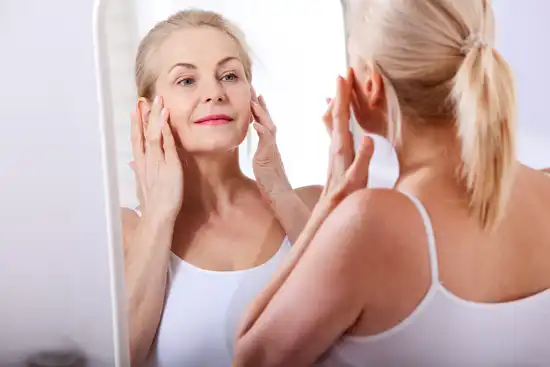Your skin needs the right balance of nutrients to do its main job: a barrier that protects the rest of your body from things outside it. To help keep your skin looking, working, and feeling good, feed it well from the inside.
Healthy Fats
This is how your skin gets its "glow." Too little fat in your diet can make your skin wrinkled and dry.
Focus on monounsaturated and polyunsaturated fats from plants like nuts, seeds, and avocados and from fish. These help your skin stay moist, firm, and flexible, and they're better for your heart than saturated fats.
Omega-3 fatty acids are a kind of polyunsaturated fat, which your body can't make but needs to build cell walls. They also block a chemical that lets skin cancer grow and spread, and they may lower inflammation.
Protein
Your body turns the proteins you eat into building blocks called amino acids and reuses them to make other proteins, including the collagen and keratin that form the structure of skin. Amino acids also help slough off old skin.
Vitamin A
Both the upper and lower layers of skin need vitamin A. It seems to prevent sun damage by interrupting the process that breaks down collagen. Since it's an antioxidant, it may give your skin some protection against sunburn (although not as much as wearing sunscreen). It helps the oil glands around your hair follicles work and may also help cuts and scrapes heal, especially if you're taking steroids to reduce inflammation.
Without enough vitamin A, your skin might get dry and itchy or bumpy.
Vitamin C
Think "C" for collagen: This vitamin helps the twisted web of protein hold its shape. It's also a powerful antioxidant, protecting you from free radicals and possibly lowering your chance of skin cancer. Low levels of vitamin C can cause easy bruising and bleeding gums, as well as slower-healing sores.
Vitamin E
This antioxidant and anti-inflammatory can also absorb the energy from UV light, which damages skin and leads to wrinkles, sagging, and skin cancer. It works with vitamin C to strengthen cell walls.
Zinc
The outer layer of your skin has five times more of this mineral than the layer underneath. Zinc helps your skin heal after an injury. It's needed to keep cell walls stable and for cells to divide and specialize as they grow.
Zinc may protect skin from UV damage because of the way it behaves in relation to other metals in your body, like iron and copper. It also acts like an antioxidant.
Too little zinc can look like eczema, but the itchy rash won't get better when you put moisturizers and steroid creams on it.
Selenium
Selenium is a mineral that helps certain antioxidants protect your skin from UV rays. Selenium deficiency has been linked with a greater chance of skin cancer.
In general, fruits and vegetables are good choices because they have skin-friendly vitamins and other antioxidants.
Some foods pack more than one nutrient for your skin, which often helps them work better:
- Fatty fish (salmon, sardines, tuna): protein, omega-3s, selenium
- Leafy dark greens (kale, spinach, collards): vitamins A, C, and E; omega-3s; protein -- plus selenium in spinach
- Eggs: protein, vitamins A and E, selenium, zinc
- Flaxseeds: omega-3s, selenium
- Legumes (lentils, chickpeas): protein, zinc
- Avocados: healthy fats, vitamins C and E
- Extra virgin olive oil: healthy fats, vitamin E
Talk to your doctor if you're concerned you're not getting enough of these key nutrients from your food to make sure supplements won't affect your health in other ways. Fish oil is a source of omega-3s, for example, but taking it may not be a good idea if you're on blood thinners or have a weakened immune system. And zinc supplements can make some antibiotics less effective.
SKINCARE TIP: using moisturizers that contain the above ingredients will help your skin to 'glow' not just from inside but also from the outside. Make sure you choose skincare that contains all the above in gentle, clean formulations.




